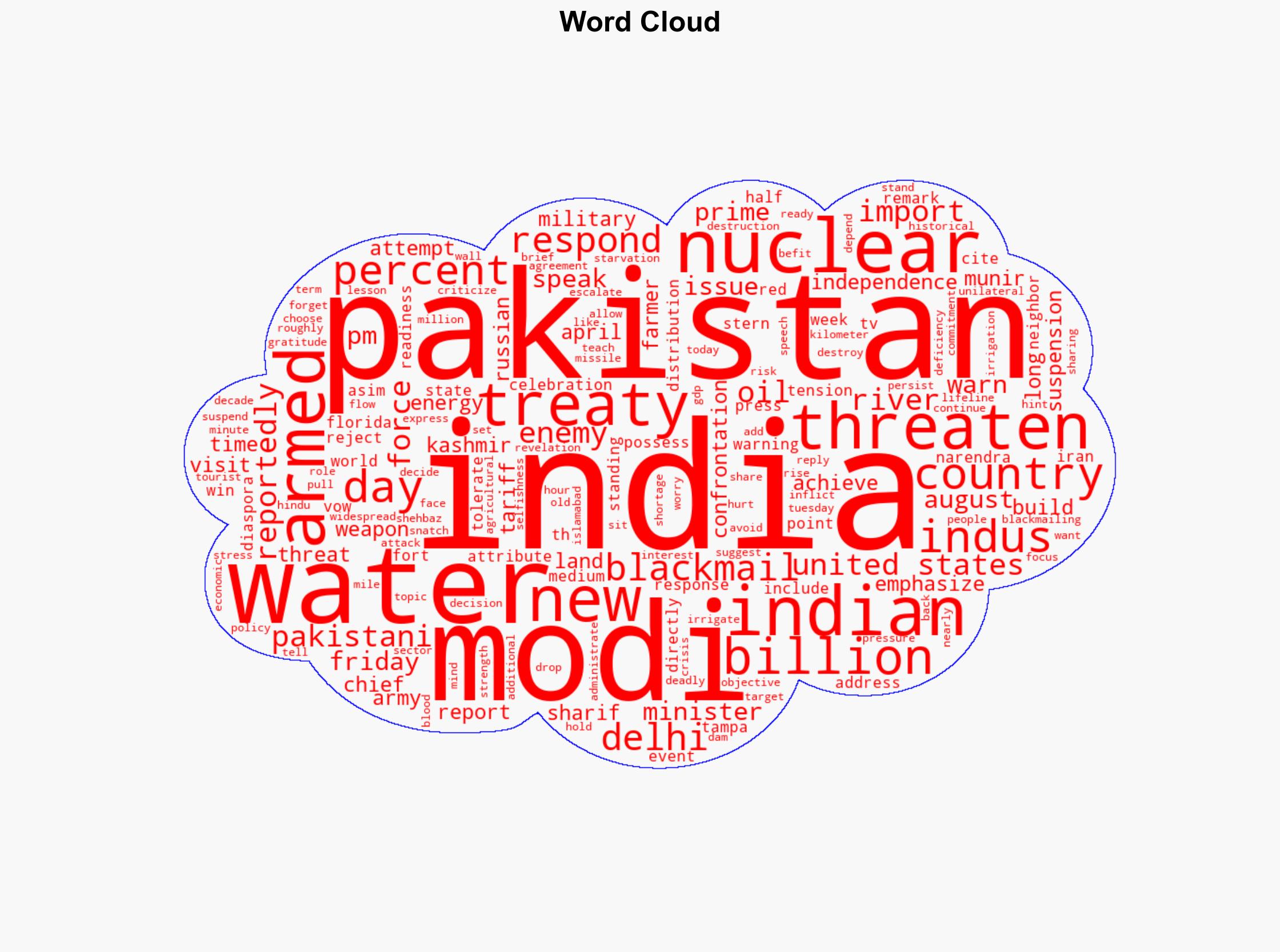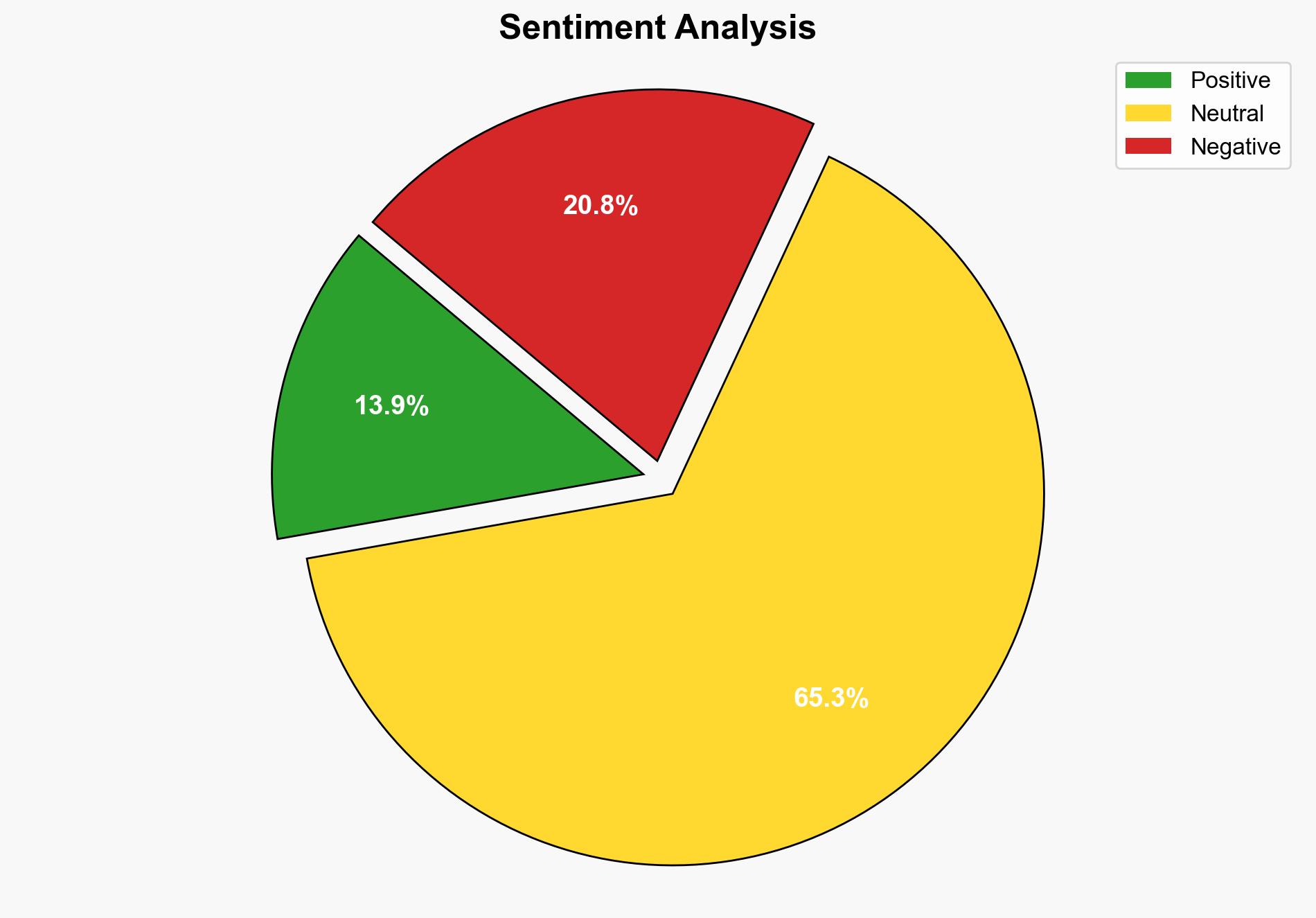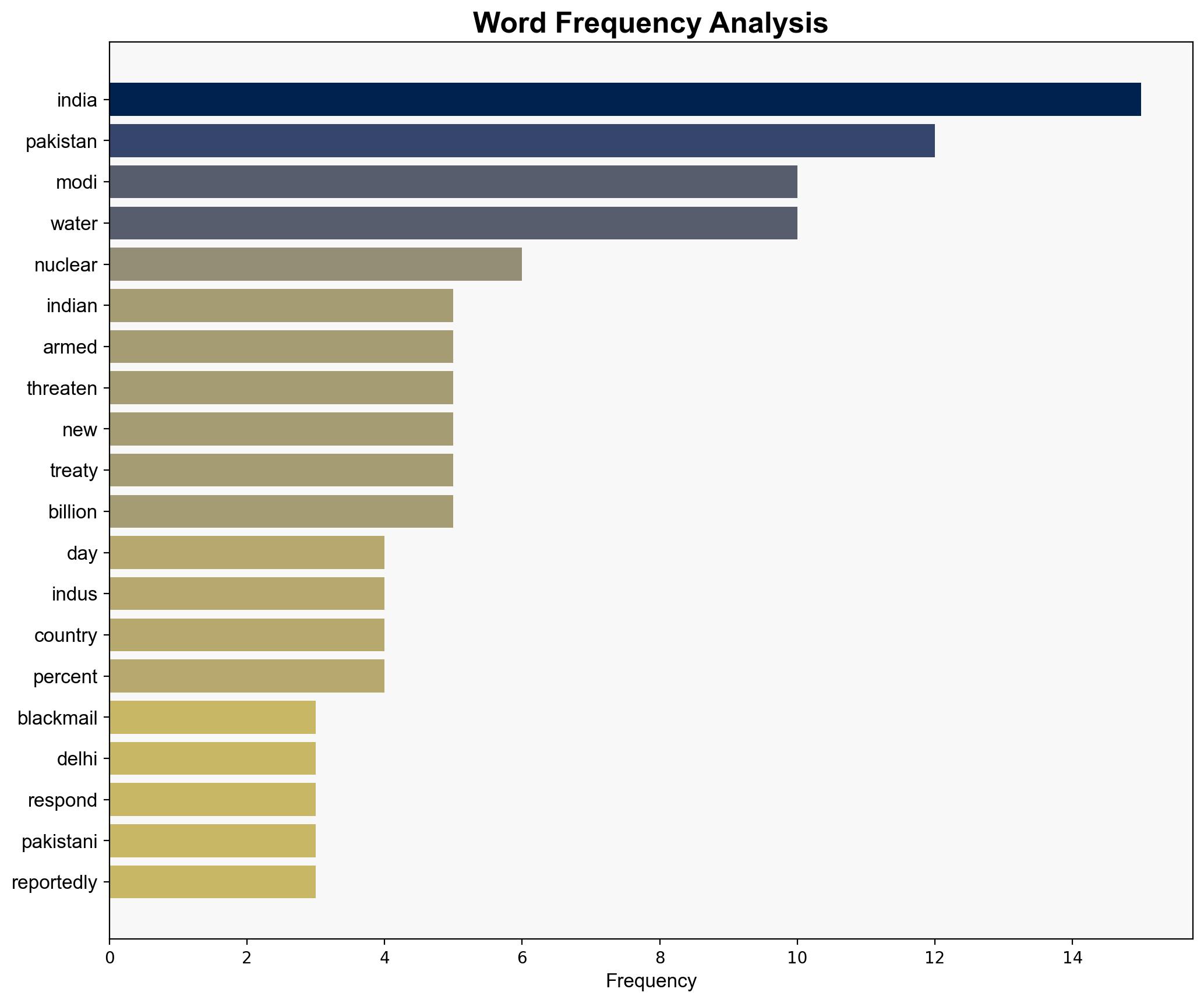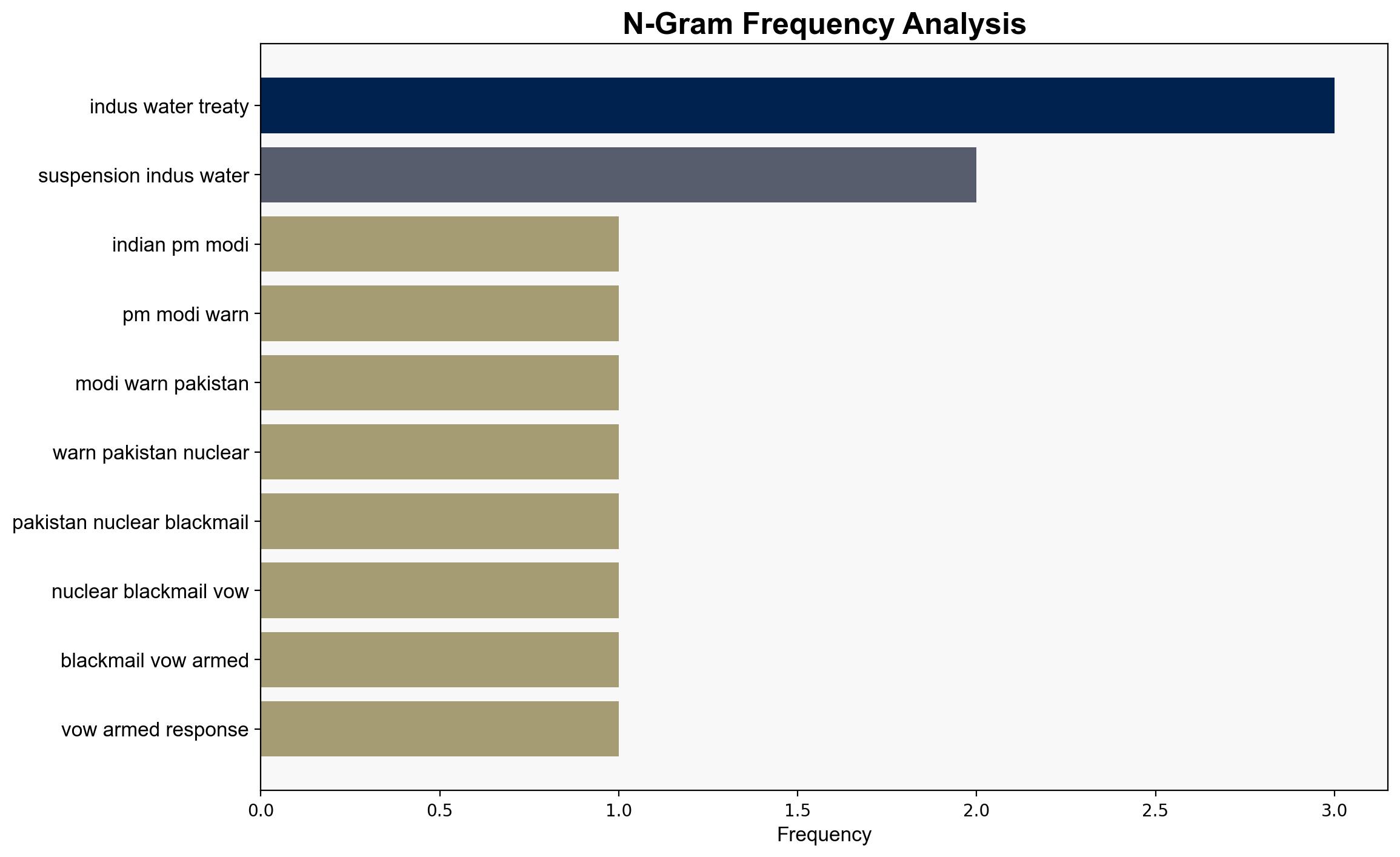Indian PM Modi warns Pakistan against ‘nuclear blackmail’ vows armed response – Globalsecurity.org
Published on: 2025-08-16
Intelligence Report: Indian PM Modi warns Pakistan against ‘nuclear blackmail’ vows armed response – Globalsecurity.org
1. BLUF (Bottom Line Up Front)
The strategic judgment is that the current rhetoric between India and Pakistan, involving nuclear threats and water treaty tensions, could escalate into a significant regional conflict. The most supported hypothesis is that India is leveraging strong rhetoric to deter Pakistan from further nuclear posturing. Confidence level: Moderate. Recommended action is to enhance diplomatic engagement to de-escalate tensions and ensure regional stability.
2. Competing Hypotheses
1. **Hypothesis A**: India is using strong rhetoric as a deterrence strategy to prevent Pakistan from escalating nuclear threats and to maintain regional stability.
2. **Hypothesis B**: India is preparing for a potential military confrontation with Pakistan, using the nuclear threat as a pretext to justify future military actions.
Using ACH 2.0, Hypothesis A is better supported due to India’s historical preference for strategic deterrence and the emphasis on readiness rather than immediate action. The focus on rhetoric suggests a strategic communication effort rather than imminent military engagement.
3. Key Assumptions and Red Flags
– **Assumptions**: It is assumed that both countries are rational actors and that nuclear threats are primarily rhetorical. It is also assumed that the suspension of the Indus Water Treaty is a bargaining tool rather than a precursor to conflict.
– **Red Flags**: The lack of direct communication between the two governments increases the risk of misinterpretation. The reported statements from Pakistani officials could be exaggerated or misrepresented, leading to miscalculations.
4. Implications and Strategic Risks
The primary risk is the potential for miscalculation leading to military conflict. Economic implications include disruptions in regional trade and potential sanctions. Cybersecurity threats may increase as both nations could engage in cyber operations. Geopolitically, increased tensions could draw in external powers, complicating the regional security landscape.
5. Recommendations and Outlook
- Engage in back-channel diplomacy to reduce tensions and clarify intentions.
- Encourage international mediation to address water-sharing disputes.
- Monitor military movements and communications for signs of escalation.
- Scenario Projections:
- Best: Diplomatic resolution and resumption of the Indus Water Treaty.
- Worst: Military confrontation with potential nuclear implications.
- Most Likely: Continued rhetorical posturing with periodic diplomatic interventions.
6. Key Individuals and Entities
– Narendra Modi
– Asim Munir
– Shehbaz Sharif
7. Thematic Tags
national security threats, regional stability, nuclear deterrence, water diplomacy




